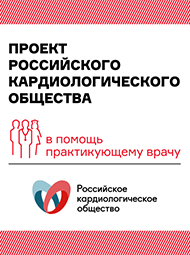Novel oral anticoagulants may reduce stroke, bleeding risk in patients with renal impairment
In patients with mild or moderate renal impairment, the use of novel oral anticoagulants appears to confer reduced risks for stroke or systemic embolism, as well as for major bleeding, compared with warfarin, according to research published in The American Journal of Cardiology.
“We found that subjects with mild or moderate renal impairment have less risk of stroke or systemic embolism when taking [novel oral anticoagulants] than when taking warfarin, a finding in line with the overall effect favoring [novel oral anticoagulants] over warfarin,” the researchers wrote. “For subjects with normal renal function, the benefits of [novel oral anticoagulants] and warfarin appear to be similar.”
For the meta-analysis, the investigators searched various medical databases for studies analyzing the risk for stroke and systolic embolism events in individuals with nonvalvular atrial fibrillation.
Eligible studies randomly assigned patients to the novel oral anticoagulants dabigatran (Pradaxa, Boehringer Ingelheim), rivaroxaban (Xarelto, Janssen Pharmaceuticals), apixaban (Eliquis, Bristol-Myers Squibb) or edoxaban (Savaysa, Daiichi Sankyo) vs. warfarin, then documented outcomes in association with kidney function.
Four trials involving 58,338 patients were included in the analysis. Overall, 29,066 patients had been randomly assigned to a novel oral anticoagulant and 29,010 to warfarin.
The researchers assessed the pooled RR for stroke and systolic embolism events and major bleeding in relation to renal function. Data on these outcomes were stratified by baseline estimated glomerular filtration rate: normal function, estimated glomerular filtration greater than 80 mL/min; mild impairment, 50 mL/min to 80 mL/min; and moderate impairment, less than 50 mL/min.
The primary efficacy outcome was stroke (ischemic or hemorrhagic) or systemic embolism, and the primary safety outcome was major bleeding as defined by the International Society on Thrombosis and Haemostasis criteria.
Regardless of anticoagulant therapy, patients with renal impairment demonstrated higher residual risks for stroke or systolic embolism than those with normal function.
Patients with normal renal function showed no difference in risk for stroke and systolic embolism based on novel oral anticoagulants vs. warfarin regimens; however, those on novel oral anticoagulants were at a slightly lower risk for bleeding (RR = 0.87; 95% CI, 0.76-0.99).
Patients with mild or moderate renal impairment had a decreased risk for stroke and systolic embolism when treated with novel oral anticoagulants vs. warfarin (mild impairment, RR = 0.75; 95% CI, 0.66-0.85 and moderate impairment, RR = 0.8; 95% CI, 0.68-0.94); similar risk reductions were seen for major bleeding (mild impairment, RR = 0.87; 95% CI, 0.79-0.95 and moderate impairment, RR = 0.8; 95% CI, 0.71-0.91).
“Our findings are consistent with previous evidence that subjects with renal impairment are at higher risk of stroke and bleeding,” the researchers wrote. “Finally, there are plausible biological mechanisms to explain the higher risk of stroke.” – by Jennifer Byrne
Disclosure: The researchers report no relevant financial disclosures.
Source: www.healio.com






